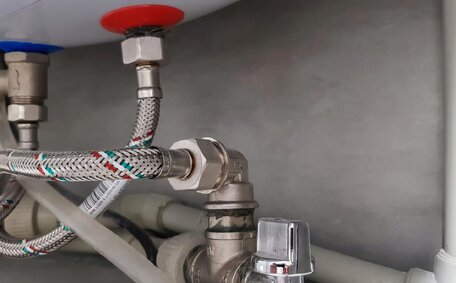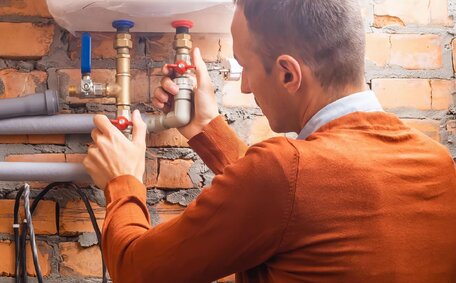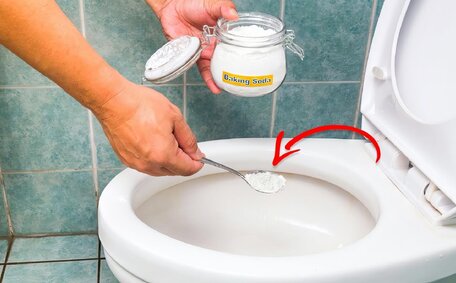Introduction to Emergency Plumbing Situations
Understanding legal rights and responsibilities is essential in managing emergency plumbing situations effectively.
Burst pipes, gas leaks, plumbing drainage issues, and other workplace health problems in your home can quickly escalate into safety hazards, property damage, and expensive repairs if not addressed promptly.
In a rental property or strata complex, determining who is responsible for repair costs for plumbing problems in an emergency is crucial. A tenant noticing a serious leak must immediately inform the landlord, whereas an owner or landlord must promptly arrange repairs for tenant-occupied premises.
Neglecting to engage a qualified plumber may result in negligence charges. For a thorough resolution, it’s essential for a professional plumber to oversee the work as soon as issues arise. For common property areas, the body corporate must authorise and ensure that necessary work can be carried out and paid for.
Tenants must rapidly inform landlords of plumbing issues, and landlords, in turn, must promptly alert strata management if common areas are affected.
Understanding these requirements can save all parties from unnecessary complications and help carry out plumbing jobs efficiently. Strict response timelines are in place to minimise consequential damage.
Attempting DIY projects on common plumbing issues often worsens the emergencies and violates rules.
Only licenced gas plumbers can service or install gas systems, while specialists in plumbing for commercial properties must handle sewer line issues.
Prompt action informed by a clear understanding of legal obligations is vital in managing plumbing emergencies. Knowing who to contact, following notification procedures, and utilising professional services will limit any other impacts and protect residents or occupants.
Defining Emergency Plumbing Issues
Emergency plumbing issues demand immediate attention to avert further damage and health risks. They are characterised by their sudden, unexpected nature and the potential consequences to health safety if not addressed swiftly.
Common scenarios include burst pipes, gas hot water system failures, sewage backups from blocked drains, and gas leaks. Issues like these can lead to unsanitary conditions, water pressure losses, electrical hazards, mould concerns, and collapse dangers if water penetrates foundations or soils become destabilised.
The risks emergency plumbing issues pose mean they warrant an immediate response, even outside business hours. If neglected or mishandled, minor issues like frozen pipes can develop into situations necessitating extensive repairs or replacements. Water damage also spreads rapidly, soaking internal walls, floors, and furnishings in affected areas.
When confronted with an plumbing emergency, the first step is to turn off the main water or gas supplies to contain the problem. Tenants need to quickly contact emergency plumbing services, whereas landlords or owners should promptly inform relevant authorities of any strata-related plumbing damage. Calling a 24/7 plumber to do the assessment and repair the issue is critical to minimise impacts.
Attempting makeshift fixes as a DIY enthusiast often violates regulations and can worsen issues. Licenced plumbers have the expertise to diagnose problems, including issues with pipes fittings, perform plumbing installation to code, and provide documentation for insurance purposes. Their rapid response can also help salvage or restore property, which is why savvy customers often recommend them highly.
Landlord vs Tenant Responsibilities
When a plumbing emergency arises in a rental property, there are clear divisions of responsibility between landlords and tenants. Understanding these obligations is key to ensuring plumbing projects get resolved promptly.
Tenants must quickly alert landlords to plumbing issues such as leaks or blockages to avoid expensive repairs. Minor issues in your plumbing system left unchecked can escalate quickly, an unfortunate event that can be avoided with timely notification. Tenants should also refrain from attempting diy plumbing repairs, which often breach rental agreements.
Upon notification, landlords are obliged to facilitate urgent repairs by a qualified plumber within 24 business hours.
Generally, landlords bear the cost of plumbing repairs unless tenant misuse is proven.
For your strata property plumbing units, obligations differ slightly. The strata scheme then organises and funds repairs through strata levies. Landlords can’t delay addressing problems pending approval from the strata manager.
Tenants report issues to the landlord, who notifies the owners corporation if common property is impacted.
While landlords organise access for repairs, tenants are expected to cooperate, move possessions if needed, and not hinder the works. They should relay information to assist the plumber, who can identify and diagnose issues.
After repairs, tenants should inspect work and ensure any damage, like soaked carpets, have a proper clean up process executed. Landlords must provide certification of repairs plus scope to claim on insurance if required. By recognising their respective duties, we are able to ensure landlords and tenants work together to resolve emergencies.
Identifying Plumbing Emergencies
Warning signs include uncontrollable water leaks from pipes or taps, sewer odours indoors, major pressure drops, and any gas smells. Burst pipes will cause obvious flooding and water damage, while clogged drains back up sinks or toilets.
A failure in the hot water system is evident when outlets emit only cold water. Recognising a plumbing emergency quickly is crucial to ensuring all involved are able deal with the situation effectively.
Unresolved plumbing emergencies can jeopardize structural integrity, personal belongings, and health. Gas leaks lead to explosion and poisoning dangers, making rapid repair replacement efforts a necessity requiring immediate evacuation.
Should your functional plumbing be compromised, promptly calling a plumber is crucial to avoid risking property, finances, and safety.
Determining Repair Responsibilities
Assigning responsibility for repairs after a plumbing emergency hinges on several critical factors. In a rental property, the landlord is generally liable for fixing issues like burst pipes or a troublesome blocked drain. However, tenants may be responsible if problems arose from negligent damage or misuse.
For owner-occupiers and landlords, responsibility for issues with the main water line falls with the individual lot owners. In complex strata schemes, evidence may be needed to establish responsibility. Checking documents like tenancy agreements, by-laws and building management statements can clarify who responsible for authorising and funding the work being carried out.
Maintenance needs are typically the owner’s duty. But sudden failures requiring complete replacements may be deemed capital upgrades, which can have different rules. Differentiating between routine maintenance and complete asset replacement is crucial.
Where responsibility lies also influences response times. Strata committees sometimes approve non-critical works, whereas landlords have to respond swiftly in emergencies. When in doubt, get professional advice to ensure emergency work and repairs are carried out by those accountable.
Clarifying Terms in Rental Agreements
Tenants must grasp all rental agreement terms concerning emergency plumbing situations. The agreement should clearly outline the process for reporting problems and arranging necessary plumbing repair. Key details to clarify include:
- Who to contact – specify how to notify the landlord or property manager about leaks, blockages etc.
- Emergency definitions – define what constitutes an emergency requiring urgent repairs.
- Response timeframes – mandate that issues be resolved swiftly, preferably within 24 hours.
- Access rules – highlight when the landlord can enter without notice.
- Liability and costs – explain if tenants pay for damage caused by misuse.
- DIY limitations – forbid tenants attempting repairs themselves.
Having these instructions upfront ensures tenants follow protocol. It also sets expectations for response times.
Landlords benefit from quicker notification and avoiding disputes over responsibility. Defining emergency plumbing procedures in a clear written agreement is prudent for both parties.
Legal Steps for Handling Emergencies
When faced with a plumbing emergency, there are important legal steps to take to protect yourself and minimise further issues. Tenants should immediately notify their landlord in writing, retaining proof like an email, to establish they met their duty to report problems.
Landlords are required to facilitate repairs quickly and record the plumber’s attendance. Strata owners should alert their scheme and confirm next steps, querying about your 0 call out fee offers. Landlords are required to facilitate repairs quickly and record the plumber’s attendance.
Photograph damage for evidence and get a detailed report from the plumber specifying repairs performed. Failure to follow procedures may breach rental agreements, strata by-laws and plumbing codes, leaving parties liable for negligence. Adhering to notification laws while proactively mitigating risks through urgent repairs by a licenced plumber demonstrates duty of care.
All documentation may assist with insurance claims. Resolving issues cooperatively can help to avoid disputes.
Contacting a Licensed Professional
When faced with a plumbing emergency, it is crucial to contact your local qualified, licenced plumbing professional as soon as possible. DIY fixes often exacerbate the issue and can void home insurance policies if unlicensed work is done. It’s imperative to ensure your plumbing repairs are carried out by only licenced plumbers who have the expertise and qualifications for compliance in emergency situations.
There are strict legal requirements concerning who can undertake certain plumbing work. Gas lines services, drainage works and hot water system repairs require specific plumbing licences. Failure to use licenced professionals for essential plumbing maintenance means work won’t meet regulations and could render insurances invalid.
Choosing licenced plumbers is essential, ensuring work is insured and certified in line with no call-out fee policies. Their work is guaranteed and compliant, ensuring the job is done to the highest standard.
Attempting repairs independently could worsen any structural home building damage, leaks or blockages. Timely assistance from qualified experts helps contain emergencies and implement solutions to code.
It’s imperative to describe the plumbing issue and its urgency clearly when contacting a plumber. They can also provide compliance certificates upon completing repairs. Taking a collaborative approach ensures emergencies are rectified properly to avoid further issues arising.
Licenced plumbers hold mandatory certificatidures
When a plumbing emergency causes damage to your plumbing, following the proper insurance claim procedures is crucial to receive compensation. Here are some key steps to take:
Document the Damage
Take photos and videos showing the full extent of the damage caused by the plirming the cause and repair work needed.
Contact Your Insurer
Notify your insurance company abnts.
Make Emergency Repairs
Get a qualified, licenced plumber to make emergency repairs immediately to stop ongoing damage. Keep all invoices and compliance certificates. Avoid DIY fixes as this can void insurance claims.
Dry Out Water Damage
Use professional water extraction services to dry out flooded areas. This prevents mould growth. Keep receipts for these services to add to your claim.
Complete Claim Paperwork
Fill out all required claim forms in full and submit them promptly with supporting evidence like photos, plumbing reports and invoices. Be cooperative in providing any additional info needed.
Negotiate Fair Settlements
Work constructively with insurers and assessors to settle claims fairly. You may need to get quotations from plumbers to justify repair costs. Be realistic but firm on receiving adequate compensation.
Following the proper procedures helps ensure you recover the costs of repairs and restoration after a plumbing emergency. Document everything and keep your insurer informed to streamline the claims process.
Complying with Regulations and Codes
It is crucial for plumbers to comply with all relevant plumbing regulations and codes when undertaking emergency repairs. In Australia, licenced plumbers must adhere to the Plumbing Code of Australia (PCA) which outlines strict technical and safety standards.
Key areas covered by the PCA include:
- Water service - Rules for potable water service systems and devices.
- Sanitary plumbing - Drainage systems, sewerage control and wastewater management.
- Heated water - Requirements for hot water systems, temperature control and safety.
- Gas - Technical specifications for gasfitting and consumer piping.
Licenced plumbers stay up-to-date with the latest version of the PCA and relevant state/territory regulations. Failing to comply could put public health at risk and invalidate required certifications and insurance protections.
During emergencies, taking shortcuts by not following codes could have disastrous results.
Faulty gas repairs can lead to perilous leaks, while defective water supply work carries the risk of contamination.
Enlisting professional plumbers ensures that repairs satisfy all regulatory requirements for homeowners and businesses. Plumbers will know which services need specialised certifications like gasfitting. Compliance gives peace of mind that work is legally sound, safe and minimises future issues.
Conclusion
Adhering to insurance procedures, such as recording damage, can support claims. Attempting DIY fixes often worsens issues – licenced professionals are mandatory. Adhering to plumbing regulations ensures safety and compliance.
Taking prompt, cooperative action and gaining professional help minimises legal exposure and property impacts in plumbing crises. Awareness of legal responsibilities and protocols is vital when tackling a plumbing emergency. To prevent liability for negligence, tenants should immediately report issues to landlords in writing.
Emergency plumbing issues can quickly escalate into catastrophic damage and hazards if left unchecked. Understanding how to respond appropriately as a tenant, landlord or owner is crucial. With our team of experienced, licenced experts available 24/7, we guarantee prompt and legal resolution of plumbing emergencies.
For plumbing emergencies in the Inner West, reach out via email, schedule an appointment or call us on 1300 349 338 without delay.






